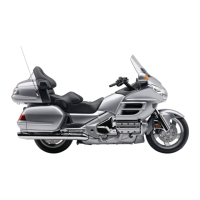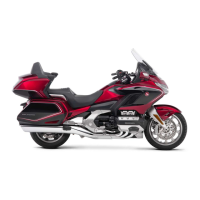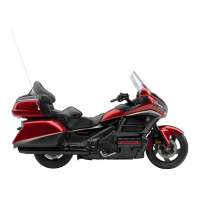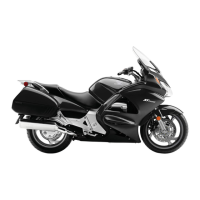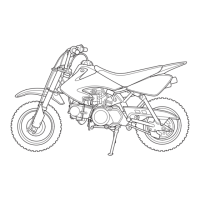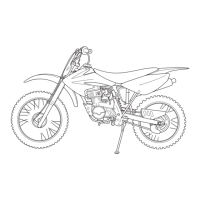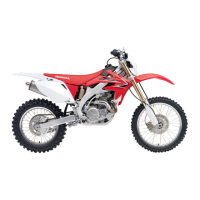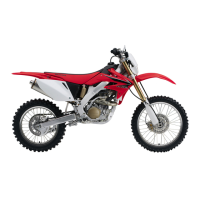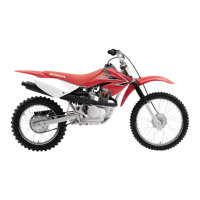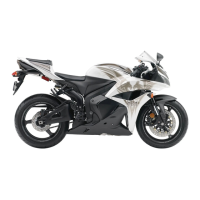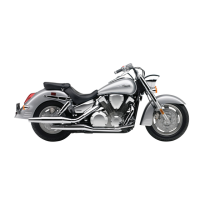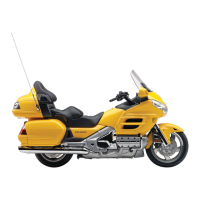
Do you have a question about the Honda 2009 GOLDWING GL1800 and is the answer not in the manual?
| Engine Type | 1832cc liquid-cooled horizontally opposed six-cylinder |
|---|---|
| Bore and Stroke | 74mm x 71mm |
| Compression Ratio | 9.8:1 |
| Ignition | Computer-controlled digital with three-dimensional mapping |
| Final Drive | Shaft |
| Front Tire | 130/70R-18 |
| Rear Tire | 180/60R-16 |
| Wheelbase | 66.5 inches |
| Seat Height | 29.1 inches |
| Fuel Capacity | 6.6 gallons |
| MPG | 35 mpg |
| Induction | Programmed Fuel Injection (PGM-FI) |
| Transmission | Five-speed including overdrive |
| Front Suspension | 45mm fork with anti-dive system; 5.5 inches travel |
| Rear Suspension | Pro Arm single-side swingarm with Pro-Link single shock; 4.1 inches travel |
| Front Brakes | Dual full-floating 296mm discs with three-piston calipers |
| Rear Brake | Single 316mm disc with three-piston caliper |
Essential recommendations for riding safely, including helmet use, rider training, and defensive riding.
Guidelines and warnings regarding the safe use and installation of motorcycle accessories and modifications.
Information about the location and purpose of safety labels on the motorcycle.
Illustrations showing the location of all gauges, indicators, and controls on the motorcycle.
Explanation of the function of various gauges and indicator lights on the motorcycle's dashboard.
Details on the functions and operations of the motorcycle's multi-information display system.
Description of key controls like ignition, engine stop, cruise control, and lighting functions.
Checks for rider readiness, including physical condition, protective gear, and control familiarity.
Recommendations for essential riding gear such as helmets, boots, gloves, and protective clothing.
Guidance on developing riding skills and recommendations for safety courses.
Essential pre-ride inspection steps for tires, wheels, lights, and fluid levels.
Information on motorcycle weight capacity, cargo limits, and guidelines for loading.
Details on opening, closing, and locking the travel trunk, saddlebags, and fairing pockets.
Adjustments for suspension, windscreen, ventilation, and heated grips/seats for rider comfort.
General precautions for operating the motorcycle safely, including familiarization and environmental awareness.
Procedure for starting and stopping the engine, including preparation and safety checks.
Instructions on operating the motorcycle's five-speed transmission and recommended shift points.
Step-by-step guide for using the motorcycle's reverse system for backing up.
Explanation of the linked braking system, braking techniques, and emergency procedures.
Information on how the ABS functions, its limitations, and indicator lights.
Explanation of the TPMS, its indicator, and how it monitors tire pressure.
Instructions on how to safely park the motorcycle, including using stands and steering lock.
Recommendations for securing the motorcycle against theft, including using locks and secure parking.
Important considerations and safety advice when carrying a passenger or cargo.
Guidelines for using the cruise control system, including speed limits and operating conditions.
Precautions and advice for riding the motorcycle in adverse weather conditions like rain or fog.
Overview of the motorcycle's audio system components and basic functions.
Explanation of how to use the MODE knob/button for audio system adjustments like Bass, Treble.
Instructions on how to adjust the volume for audio, intercom, and navigation using the controls.
Diagrams showing the layout and indicators of the audio system display.
Detailed illustrations of the audio system controls located on the handlebar and dashboard.
Identification of speakers, tweeters, amplifier, and headset terminals for the audio system.
How to turn the audio system on and off using the AUDIO button.
General advice and safety precautions before performing maintenance on your Honda.
Diagrams showing the locations of key maintenance components like reservoirs and caps.
Information on the location and availability of the motorcycle's tool kit.
Guidance on where to store the owner's manual and other documents on the motorcycle.
Instructions on how to remove various covers for maintenance access.
Procedure for safely removing and installing various clips used on the motorcycle.
Recommendations and procedures for fuel, engine oil, coolant, and final drive oil.
Maintenance procedures for the clutch system and spark plugs.
Maintenance for suspension, brakes, tires, and side stand.
Information on the motorcycle's battery system and its maintenance.
Tips and procedures for cleaning and maintaining the motorcycle's exterior finish.
Procedures for preparing and storing the motorcycle for extended periods, like winter.
Guidelines and recommendations for safely transporting the motorcycle.
Tips for environmentally responsible ownership, including cleaning and waste disposal.
Basic advice for handling problems encountered while riding, emphasizing safety and assessment.
Troubleshooting guide for engine starting issues, covering common causes and solutions.
Steps to take for a flat tire, including transport options and temporary repair guidance.
Information on identifying and addressing engine overheating issues, including fan and coolant checks.
Guidance for when the low oil pressure indicator illuminates, focusing on oil leaks and levels.
Procedure for checking and replacing fuses to troubleshoot electrical issues on the motorcycle.
Steps to take after a crash, prioritizing personal safety and evaluating motorcycle condition.
Advice on what to do if you lose your motorcycle key, including obtaining a duplicate.
Troubleshooting for a low or dead battery, including charging and jump-starting advice.
Information on identifying the motorcycle, including VIN, engine number, and color label.
Technical data including dimensions, capacities, fuel/lubricant recommendations, and electrical specs.
Recommendations for the initial riding period to ensure motorcycle reliability and performance.
Detailed explanation of the TPMS, its indicator, and how it functions.
Information on exhaust and noise emission requirements and compliance for the motorcycle.
Explanation of the three-way catalytic converters, their function, and maintenance guidelines.
Information on using oxygenated fuels, their types, and potential effects on the motorcycle.
Information on how to order service manuals and other documentation for your Honda.
Details on the motorcycle's limited warranties, including responsibilities and exclusions.
Guidance on obtaining warranty service, including making appointments and authorizing inspections.
Information on how to contact Honda for questions, comments, or issues with your dealer.
Information on services offered by your Honda dealer, including sales, parts, and service departments.
Details about membership eligibility and benefits for the Honda Rider's Club.
Instructions on how to report vehicle safety defects to NHTSA and American Honda.
